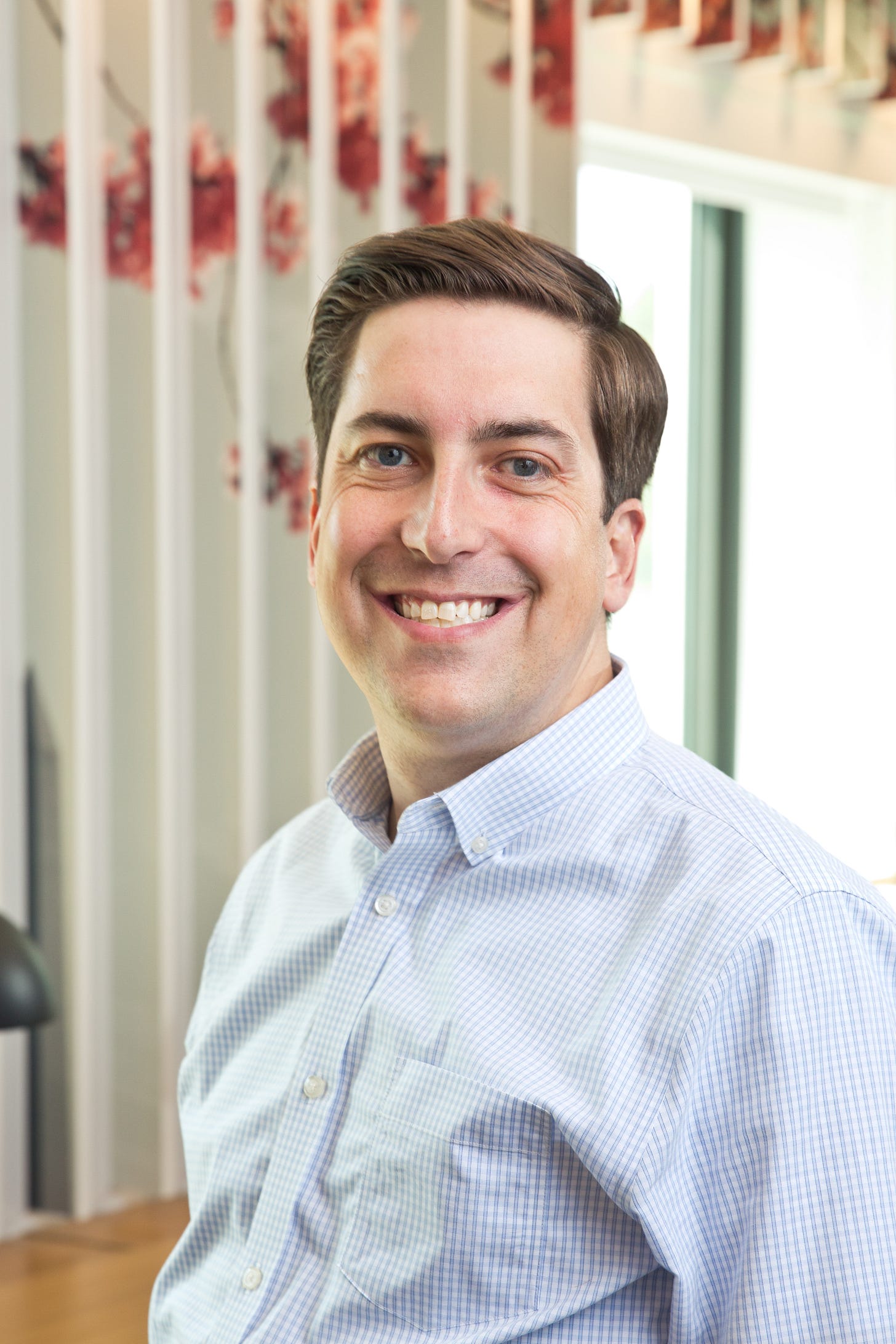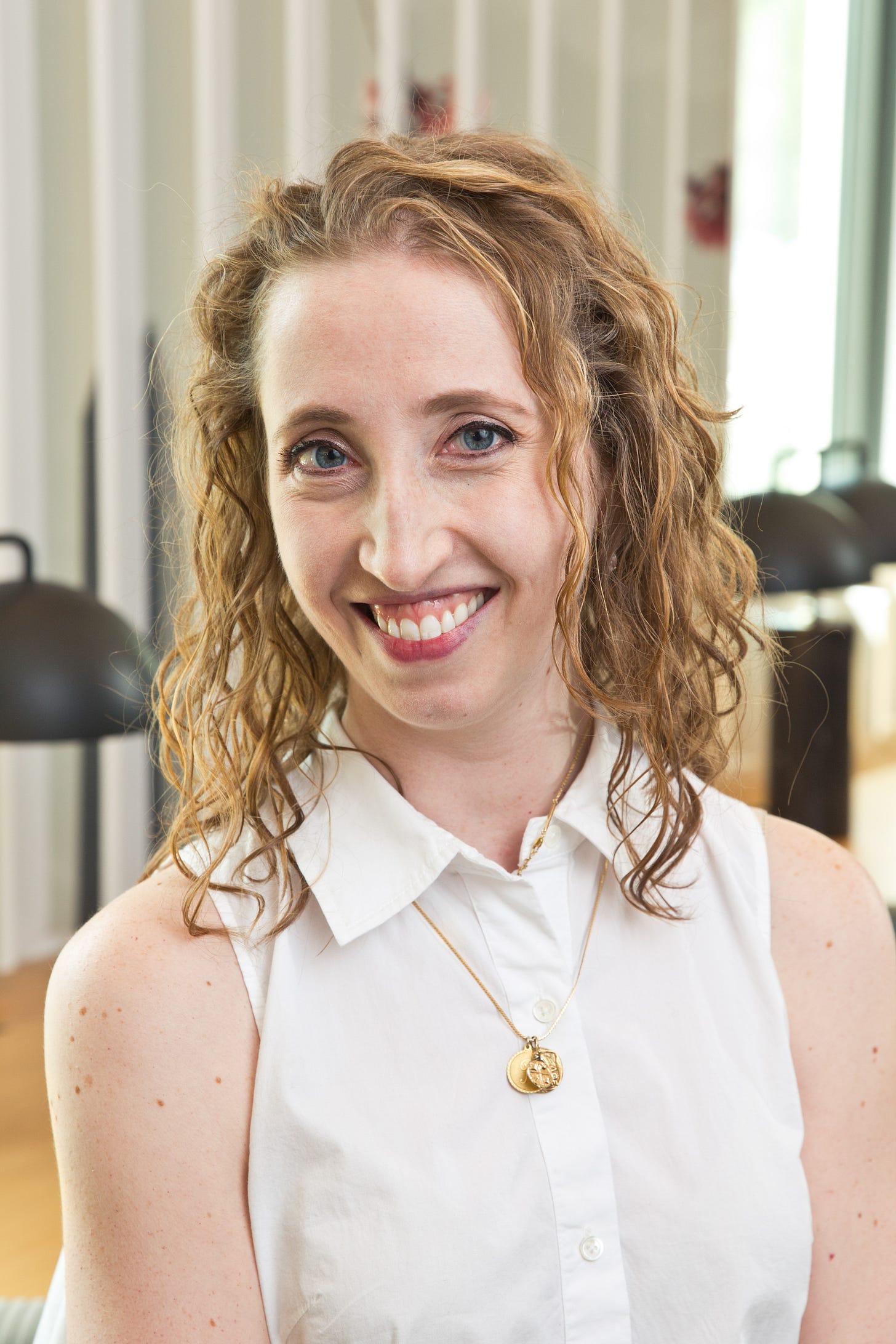CHD care is full of unknowns. They want answers.
The Congenital Heart Initiative is gathering patient data in an effort to improve treatment.

Welcome! This is The Heart Dialogues, a free newsletter for people born with heart conditions (and the people who love them). Add your email to join this community. Every other week, you’ll get candid conversations, essays, links, recommendations and other good stuff about living with a wonky heart.
As a person born with a rare heart defect, I know the value of good and plentiful data—or, at least, the consequences of not having it. To cite one small example: My cardiologists’ guidance on taking antibiotics before dentist appointments changed repeatedly while I was growing up. The idea was to prevent a heart condition called endocarditis, which is usually caused when germs enter the bloodstream, a thing that can happen in the mouth. In practice, this meant that over the years I got the following advice:
Take antibiotics before getting cavities filled.
No, take them before checkups.
Wait, no, you don’t need to take them at all.
Actually, scratch that, take them before every appointment.
It seemed like not enough good data existed to give me a definitive answer. Similarly, data on quality of life with a CHD, the prevalence of mental health issues, the safety of pregnancy, transition out of pediatric care and a bevy of other topics is thin on the ground.
That’s where the Congenital Heart Initiative comes in.
The CHI is a first-of-its-kind research registry for adult congenital heart disease. It consists of a series of surveys, sent out periodically to adult CHD patients, with the goal of gathering enough responses to build a tool for healthcare professionals and patients to better understand and treat CHD. Any person over 18 with a congenital heart condition can join.1
With enough data, it might be possible one day to find out answers to questions like, which medication is the most effective? Or, how do lapses in care affect outcomes? The results could also be used to push for particular approaches to care, such as having more psychologists on staff at ACHD clinics.
Registries exist for many other diseases, from breast cancer to cerebral palsy. Having one for CHD is particularly important. For one thing, adult CHD care is a relatively young field of medicine, and it’s often difficult for doctors to balance seeing their patients with conducting research, said Dr. Anitha John, an adult congenital cardiologist and medical director of the Washington Adult Congenital Heart Program at Children’s National Hospital in D.C. and lead investigator of the CHI. Isolation is another common part of living with CHD; many patients don’t know others like them, and don’t necessarily know what’s “normal.”
“The ultimate goal is really to have a platform that we can gather information from to advance care,” John told me in February.
In the U.S., CHD research is often found in separate pools of data, covering things like surgeries, intensive care or transplants; one aim of the CHI is to bring it together into a data lake, alongside patient-reported outcomes, said Scott Leezer, senior vice president of government relations at CURA Strategies and a CHD patient who helped create the CHI. “I still felt like there was one piece of data that had been largely ignored by providers, which was the patient-reported outcome,” Leezer told me in March.
The origins of the CHI date back to December 2018, when a group of more than 30 patients, ACHD cardiologists, researchers and experts in registries, funding and other subjects got together to create the registry. It launched in December 2020, and has more than 4,000 patients enrolled worldwide.
The first “sub-study” to be built off the registry is the Congenital Heart Initiative: Redefining Outcomes and Navigation to Adult-Centered Care study, known as CHI-RON. The study links up the patient-reported survey data from the registry with electronic medical records and health insurance claims for patients at 12 participating care centers. The idea is to capture not just snapshots of patients’ health but a broad picture across their lifespans. More than 2,000 patients have been recruited.
What has the CHI learned so far? Adults with CHD report a good quality of life, according to its most recent annual report, released in May. Despite heart-related challenges, most said their health was good or better.
Many respondents have additional cardiac conditions, including arrhythmias (30%), high blood pressure (17%) and congestive heart failure (13%). The most common non-cardiac condition? Mental health problems, with 30% of survey takers reporting PTSD, anxiety or depression. Half of respondents were married, and 34% had biological children, including 38% of women. About half did not have children.
So far, the population participating in the CHI consists disproportionately of highly educated white women, with 64.3% of participants assigned female at birth, 87% white and 34% holding a graduate or professional degree, according to the May report. That represents a small shift from 2022, when 72.8% were female, 92.7% were white and 39% held an advanced degree, according to CHI’s first annual report, released in March 2022.
Ensuring that the pool of survey takers reflects the wider patient population is one of the main challenges in putting together a registry like this, according to people who worked on the CHI. Those who participate in patient-reported outcome surveys tend to be more affluent, white and female, resulting in a participation bias that skews the results, they said.
Another issue is that the registry tends to attract people who are active and invested in their cardiac care—which is only a fraction of the U.S. population of adults with childhood heart conditions. Indeed, 80% of participants had visited a cardiologist within the past year, the May report says. The Adult Congenital Heart Association estimates that less than 10% of U.S. adults with CHD who need specialty care actually get it.
“ACHD has this problem where folks think they’re fine until they’re not,” Leezer said. “So they’re out of care, they’re not seeing a cardiologist, they maybe don’t identify themselves as an ACHD patient, and they’re not likely to respond to our surveys.”
Lastly, it’s a challenge to reach patients with neurocognitive or developmental delays who can’t fill out surveys on their own and can’t necessarily consent to others filling out the surveys on their behalf, said Ruth Phillippi, program lead of the Washington Adult Congenital Heart Program at Children’s National, who also has CHD and helped develop the CHI. “That’s a big pool of people that we’re missing, and people who have valuable things to contribute and to add,” Phillippi told me in March. “For me it’s a personal goal, for a lot of us, it’s something we’d love to be able to figure out how to do.”
In the meantime, the CHI is working to recruit people who haven’t been in care and to increase the diversity of respondents, including through short-form videos on social media and by targeting specific demographics of patients at the 12 centers participating in the CHI-RON study.
“We want to try and reach the patients that can’t be reached,” John said.
Even if the CHI doesn’t get a representative sample, Leezer said, it’s still collecting important information. Earlier this year, the CHI surveyed registry participants about pregnancy. Next up, the group plans to start research on mental health, the transition from pediatric to adult care and other topics. The data is meant to help patients feel less isolated.
“You can look at other patients, see how else they’re living their lives, how many are in full employment, how many are married, how many feel particularly well about their condition. And maybe that gives you hope to live that life as well,” Leezer said.
How has a lack of answers in CHD care affected your life? What topics should the CHI explore? Tap the comment button to weigh in.
Full disclosure: I am a participant in the registry, meaning I take the periodic surveys, but the CHI did not ask me to write this piece.







One thing I would have liked too know when I was a kid if I really did have asthma or If it was pah the whole time
This was so enlightening! I've had a lapse in care, never met another person with my defect, and am only just learning -- at almost 36 years old -- that pregnancy and other fertility measures may be more complicated or risky for me. Research and outreach like this is so needed!